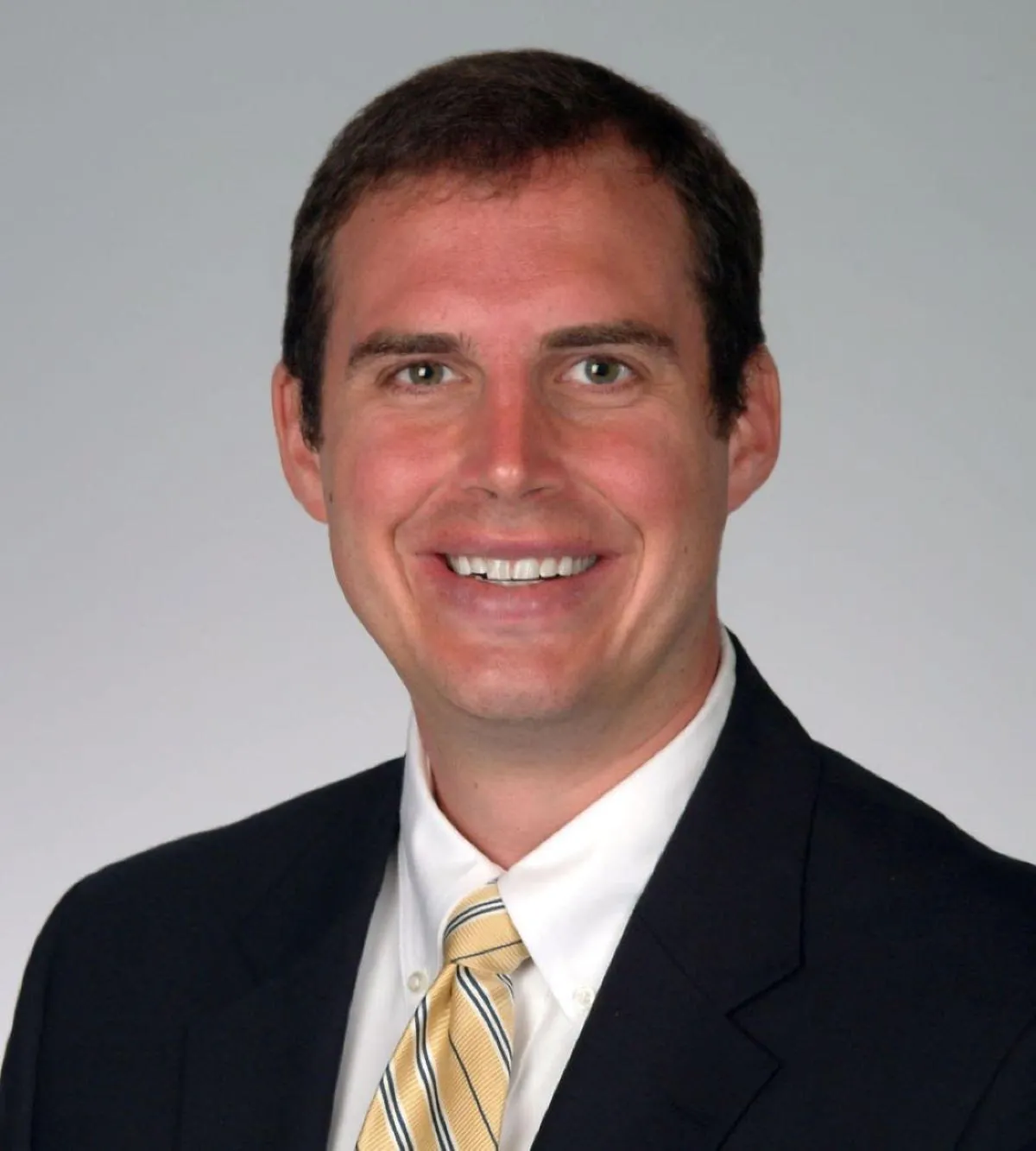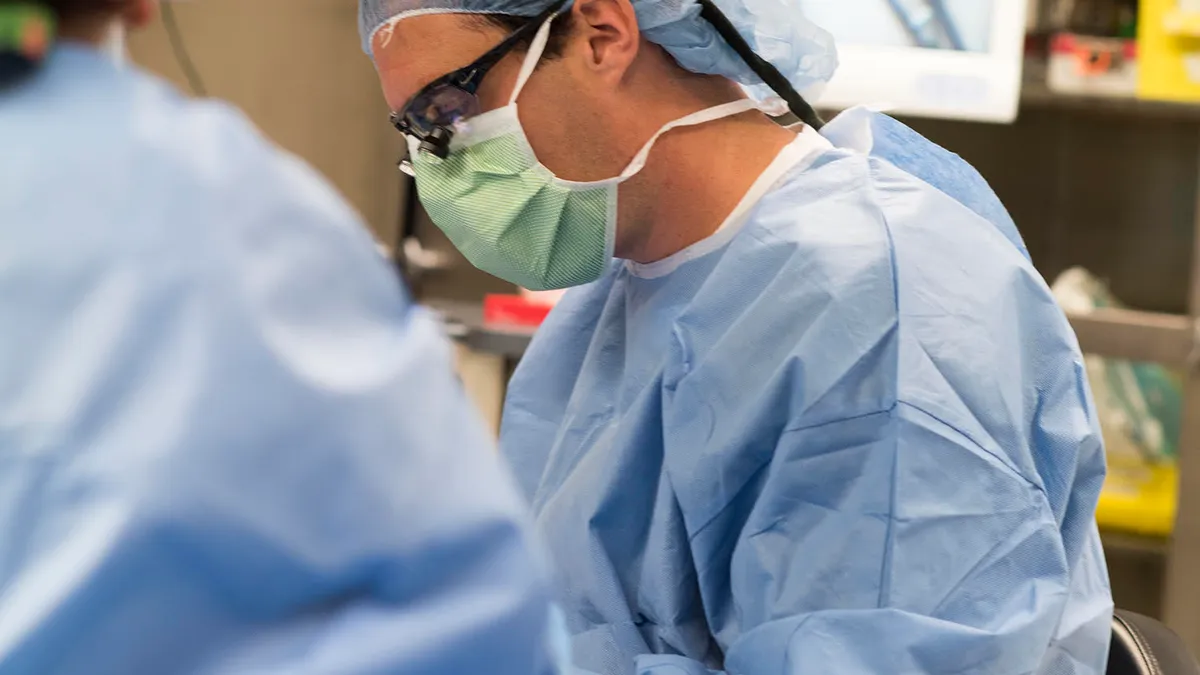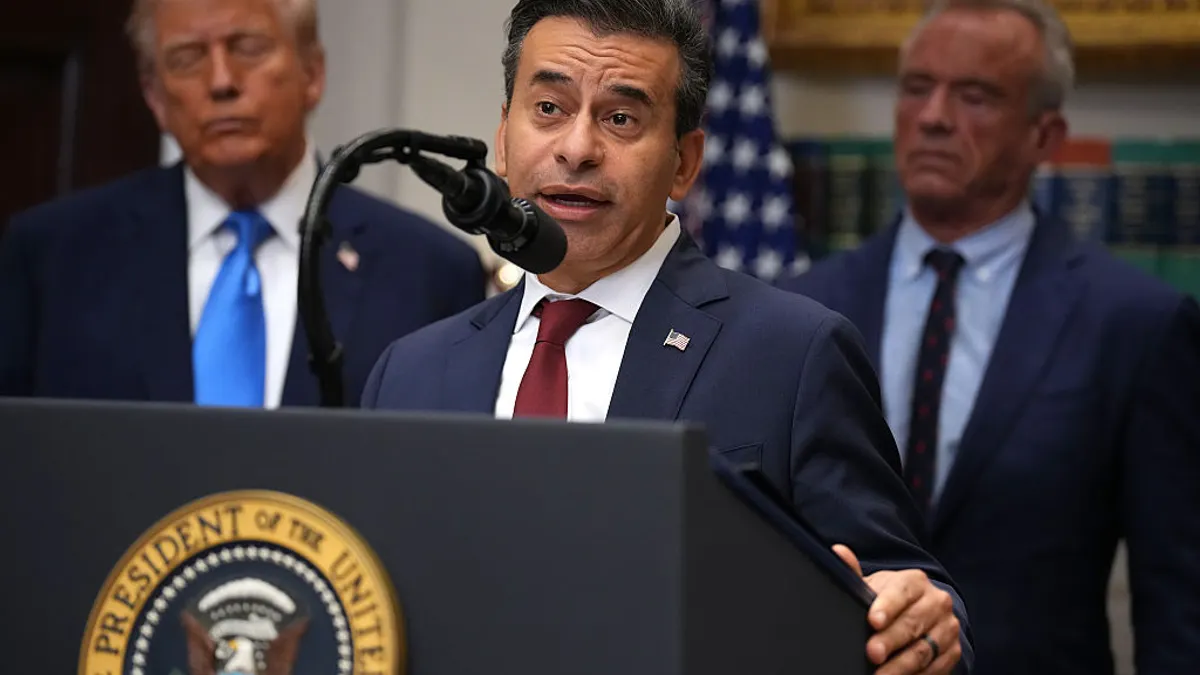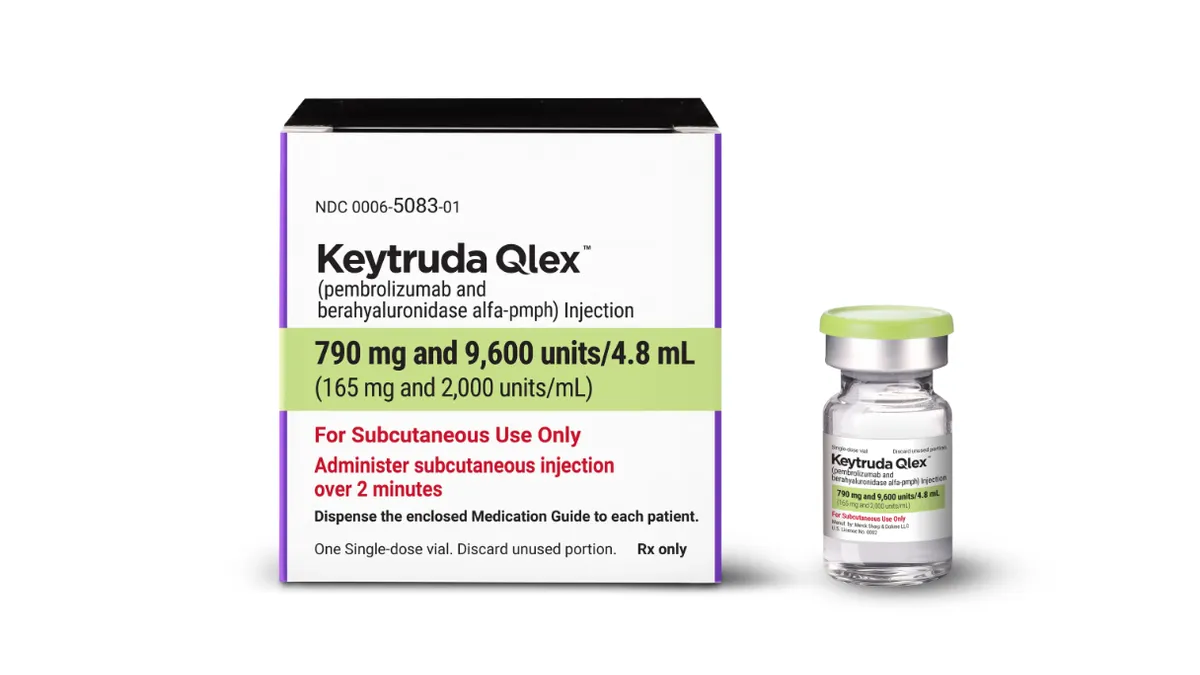George Magrath is an unusual CEO in the biopharmaceutical solutions space.
Sure, he has a CEO’s qualifications, including an MBA from The Citadel, a master’s degree in applied economics from Johns Hopkins, and professional experience working as an equity analyst at Edison Group and medical director at Hovione.
But there’s something Magrath does that most CEOs don’t: He actively practices medicine. And that, he believes, gives his company, Lexitas Pharma Services, a competitive strategic advantage. It also gives him a deep understanding of patients and their needs.
“Being a physician, being an ophthalmologist, really helps with that strategy,” he says. “I have a good idea of what our customers want, what the patients need and what really needs to happen for the process to work.”
Lexitas is a contract research organization that helps companies develop ophthalmological drugs, doing everything from designing and managing clinical trials, to preparing regulatory filings, to developing medical strategy and more. Magrath says they work with companies of all sizes, from two-person startups to large multinational pharma companies and have worked on numerous drugs on the market.

“When we’re at the tip of the spear with a lot of these trials, it really helps that I am a physician, and I’m connected with patients, and I understand the process and the disease and what everybody’s going through,” Magrath says. “I can really empathize.”
That connection and understanding of patients’ conditions makes all the difference, helping drive Magrath’s work at Lexitas, he says.
“Being a physician really connects me to the mission of the company at a really deep level, a really personal level, and that’s incredibly motivating, impactful and it makes it more than just a job, it makes it more meaningful,” he says.
The patient connection
Magrath’s work as a practicing physician holds incredible meaning for patients, too. He’s the only doctor in South Carolina with fellowship training specifically in children and adults with cancers in and around the eye.
In fact, when Magrath was doing his ophthalmology residency at the Medical University of South Carolina (MUSC), he was dismayed that no one in the state was able to provide advanced treatments for people with rare eye cancers, including infants with retinoblastoma. Instead, the hospital often sent families for treatment in Philadelphia.
“It was really hard on the patients,” he remembers. “You have these young families with infants and they’re trying to go to Philadelphia basically once a month for the first three or four years of the child’s life and it’s just a really big ask of the families.”
One single mom in particular made a huge impact on him. Although she received financial assistance for the flight to Philadelphia and hotel room, she was overwhelmed when she got there. She realized that she couldn’t travel back and forth from South Carolina to Philadelphia on her own.
“We didn’t really have much to offer her,” Magrath says.
He was so frustrated that he approached the chair of the department of ophthalmology, who told him that if he went to Philadelphia to get trained, they’d hire him when he was finished.
“I have a good idea of what our customers want, what the patients need and what really needs to happen for the process to work.”

George Magrath
CEO, Lexitas
So that’s what he did, spending two years earning a fellowship in ocular oncology at Wills Eye Hospital in Philadelphia.
“I got to go to the best place in the world to learn this and bring it back,” he says, allowing MUSC to develop a program to provide specialized treatments like an intraarterial chemotherapy, which gives a high dose of chemotherapy directly to the eye cancer without exposing the rest of a child’s body to the drug.
Magrath still thinks about that single mom, though.
“The child did OK … we treated the child as best we could,” he says. “But at the same time, they would have had a better outcome had they been able to go to Philadelphia or had we had the capabilities to treat the child in Charleston that we have now.”
It’s that knowledge of the promise and potential to always advance science and treatments that drives Magrath’s work.
“That sort of kicked off basically everything that I'm doing now,” he says. “The process of creating and testing and developing medicines is a really important area.”
Dual perspective
Although Magrath still treats patients at MUSC, it’s one or two days a week and it’s in addition to his role as CEO at Lexitas. But Magrath sees his work at Lexitas as critically important to caring for ophthalmology patients on a wider scale.
“It amplifies my ability to have an impact because if you’re a doctor, you treat one patient at a time and that’s wonderful,” he says. “If you can help advance a medicine, you can treat a lot of patients and have an impact on their life.”
As a physician, Magrath is acutely aware — especially from his own personal experience — how “incredibly reliant” doctors are on the medicines and treatments that are available to them.
“Advancing that field is very important to me,” he says.
Magrath believes that being a physician CEO gives him a “deep understanding” of every element of Lexitas’ business and the work that its roughly 150 employees do each day.
He’s also dedicated to advancing care elsewhere in the world, by working with MUSC on pro bono programs like ones to perform eye surgeries on patients in Belize, Panama and Ghana.
That dedication to improving eye treatments imbues every part of Magrath’s life, whether he’s performing surgeries or helping to develop new medicines with Lexitas.
“Our mission is to advance the prevention, treatment and cure of ophthalmic conditions by partnering with pharmaceutical companies. It’s an incredible mission and it’s really pretty inspiring,” he says. “At any one time we’re working with a number of different companies with amazing science and amazing teams.”


















